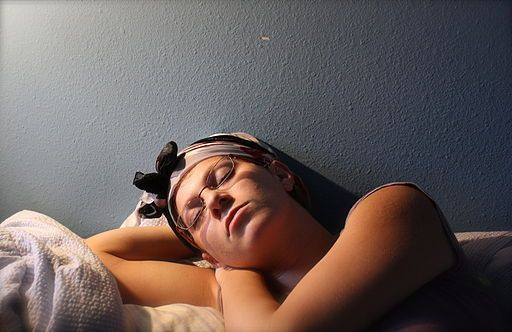Tired? More Americans Get Too Much Sleep Than Are Sleep Deprived

A new study finds that the percentage of Americans who get too much sleep— more than nine hours a night—is actually increasing, and that the percentage of those who are sleep deprived— with less than six hours per night— has decreased. What's more, longer sleep durations seem to be more widespread than shorter ones.
"This turns the current concept of an increasingly 'sleep-deprived society' on its head," wrote researchers in an American Journal of Epidemiology paper published last month, and counters the popular idea that long work hours and personal technology like computers, smartphones, and television have altered our sleeping patterns for the worse in recent decades.
The researchers found that from 1985 to 2007, the prevalence of short duration sleep (six hours or less) in the United States decreased from about 11 percent to 9 percent. In the same timeframe, the percentage of Americans who reported long duration sleep (more than nine hours) increased from 28 percent to 37 percent.
This flies in the face of last year's report from the U.S. Centers for Disease Control and Prevention (CDC), which found that 30 percent of American adults sleep six or fewer hours per day.
"One does hear again and again...that people are sleeping less than they used to," Diane S. Lauderdale, a professor of epidemiology at the University of Chicago who was not involved in the study, told MyHealthNewsDaily. "There's never been any good evidence for that."
In the new study, researchers from the University of Sydney examined data from the Multinational Time Use Survey, a collection of surveys from 10 countries that included information about how respondents spend their time over 24-hour periods, from the 1970s to the 2000s. All the surveys were conducted by national statistics organizations with the goal of forming representative samples in each country, and then standardized by the Centre for Time Use Research.
Other countries reported similar trends. The prevalence of long sleep duration also increased in Australia, Finland, Sweden, and the United Kingdom, though it decreased in Canada and Italy. Short sleep duration decreased in Sweden and the United Kingdom, while it increased in Italy and Norway.
The researchers suggest that people feel like they sleep less as they age because sleep duration naturally decreases with time, and since everyone ages at more or less the same rate, many people feel confuse sleeping less than when they were young with being sleep deprived.
They also raise the prospect that long sleep duration may contribute to public health issues, since unemployment, sedentary behavior, depression, and premature death may be linked to too much sleep.
It's possible, however, that survey participants over-reported how much they slept. The definition of sleep might vary across cultures— some people might be counting only how much time they spent in bed rather than actually asleep, and others might be counting daytime naps and resting periods differently than nighttime sleep.
Still, they seem confident about their findings that more people get too much sleep than are sleep deprived, and that the trend seems to be increasing in most of the countries surveyed.
"Given the much higher prevalence of long sleep duration compared with short sleep duration," they concluded, "the definition of 'risky' long sleep duration may need to be reconsidered."



























